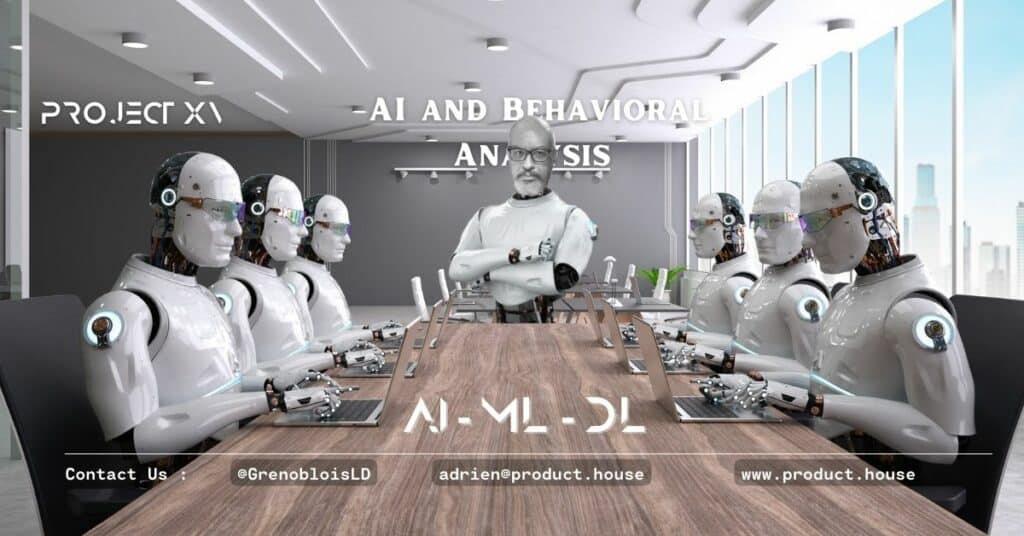AI and Identity Verification: Improving Security and Reducing Fraud

Identity verification is a critical component of many online transactions, from opening a bank account to accessing social media accounts. Traditional methods of identity verification, such as passwords and security questions, are vulnerable to hacking and fraud. This is where AI can play a significant role in improving security and reducing fraud.
1. What is Identity Verification?
Identity verification is the process of confirming the identity of an individual. This can be done through various methods, including:
- Knowledge-based verification: This involves asking questions that only the individual should know, such as their mother’s maiden name or their first pet’s name.
- Document verification: This involves verifying identity documents, such as passports or driver’s licenses, to confirm the individual’s identity.
- Biometric verification: This involves using biometric data, such as fingerprints or facial recognition, to confirm the individual’s identity.
2. The Limitations of Traditional Identity Verification Methods
Traditional identity verification methods, such as passwords and security questions, have several limitations, including:
- Vulnerability to hacking: Passwords and security questions can be hacked or guessed, leaving accounts vulnerable to fraud.
- Limited accuracy: Knowledge-based verification methods can be inaccurate, as the questions and answers may be available on social media or other public sources.
- Lack of user convenience: Traditional verification methods can be time-consuming and inconvenient for users.
3. How AI Improves Identity Verification
AI can improve identity verification in several ways, including:
- Improved accuracy: AI algorithms can analyze large amounts of data to confirm an individual’s identity with a high degree of accuracy.
- Fraud detection: AI algorithms can detect patterns of fraud and identify suspicious behavior, such as multiple account openings from the same IP address.
- Biometric verification: AI can analyze biometric data, such as facial recognition, to confirm an individual’s identity with a high degree of accuracy.
- User convenience: AI can streamline the identity verification process, making it faster and more convenient for users.
4. Examples of AI in Identity Verification
There are several examples of AI being used in identity verification, including:
- Facial recognition: AI algorithms can analyze an individual’s face to confirm their identity, making it a popular method of biometric verification.
- Behavioral biometrics: AI algorithms can analyze an individual’s behavior, such as typing patterns or mouse movements, to confirm their identity.
- Document verification: AI algorithms can analyze identity documents, such as passports or driver’s licenses, to confirm their authenticity.
- Fraud detection: AI algorithms can analyze transaction data to detect patterns of fraud and identify suspicious behavior.
5. Conclusion
AI has the potential to revolutionize identity verification, improving security and reducing fraud. By using AI algorithms to confirm an individual’s identity, organizations can reduce the risk of account hacking and fraud while providing a more convenient user experience. However, it is important to ensure that AI-based identity verification systems are accurate, reliable, and protect users’ privacy.
6. FAQs
Q1. Can AI completely replace traditional identity verification methods?
Ans. No, AI cannot completely replace traditional identity verification methods. AI can supplement traditional methods and provide additional layers of security, but it is important to use a combination of methods to ensure accuracy and reliability. The potential risks of using AI for identity verification include:
- Privacy concerns: AI-based identity verification systems may collect and store sensitive biometric data, raising privacy concerns.
- Inaccuracy: AI algorithms may not be accurate in all cases, which could result in false positives or negatives.
- Bias: AI algorithms may be biased against certain groups, such as minorities or the elderly, which could result in discrimination.
Q3. Is AI-based identity verification more secure than traditional methods?
Ans. AI-based identity verification can be more secure than traditional methods, as it can provide additional layers of security and fraud detection. However, it is important to ensure that AI-based systems are accurate, reliable, and protect users’ privacy.
Q4. Can AI-based identity verification be used for all types of transactions?
Ans. AI-based identity verification can be used for most types of transactions, but some transactions may require additional verification methods, such as in-person verification or manual review.
Q5. How can organizations ensure the accuracy and reliability of AI-based identity verification systems?
Ans. Organizations can ensure the accuracy and reliability of AI-based identity verification systems by using high-quality data, testing the system for accuracy and reliability, and implementing measures to prevent bias and protect user privacy.
List of Resources:
- Forbes – A business and financial news website that covers a wide range of topics, including cybersecurity and identity verification.
- MIT Technology Review – A technology magazine that covers emerging technologies and their impact on society.
- Identity Theft Resource Center – A nonprofit organization that provides resources and support for victims of identity theft.
- SANS Institute – A cybersecurity training and certification organization that provides education and resources for professionals in the industry.
List of Relevant Experts:
- Karen Webster – The CEO of Market Platform Dynamics, a consulting firm that specializes in payments and commerce. She is also a speaker and writer on topics related to payments and identity verification.
- David Birch – A digital identity and financial services expert who has written several books on the subject. He is also a frequent speaker and commentator on identity verification and payments.
- Javelin Strategy & Research – A research firm that focuses on the financial services industry. They provide research and analysis on topics such as identity verification, fraud detection, and biometrics.
List of Examples of Use:
- Improved accuracy and fraud detection: AI can analyze data to detect patterns of fraud and identify suspicious behavior, reducing the risk of identity theft and fraud.
- Biometric verification: AI can use biometric data, such as fingerprints or facial recognition, to confirm an individual’s identity with a high degree of accuracy.
- User convenience: AI can streamline the identity verification process, making it faster and more convenient for users.
- Document verification: AI can analyze identity documents, such as passports or driver’s licenses, to confirm their authenticity and prevent identity theft.
Glossary of Technical Terms:
- Identity verification: The process of confirming the identity of an individual
- Biometric data: Unique physical or behavioral characteristics that can be used to confirm an individual’s identity, such as fingerprints or facial recognition
- AI algorithms: Computer programs that use artificial intelligence to perform tasks and make decisions
- Fraud detection: The process of identifying and preventing fraudulent behavior
- Behavioral biometrics: The analysis of an individual’s behavior, such as typing patterns or mouse movements, to confirm their identity
Quiz
- What is identity verification?
- What are the limitations of traditional identity verification methods?
- How can AI improve identity verification?
- What are some examples of AI in identity verification?
- Can AI completely replace traditional identity verification methods?
- What are the potential risks of using AI for identity verification?
- Is AI-based identity verification more secure than traditional methods?
- How can organizations ensure the accuracy and reliability of AI-based identity verification systems?
- What is the importance of accuracy and reliability in AI-based identity verification systems?
- What is fraud detection?





